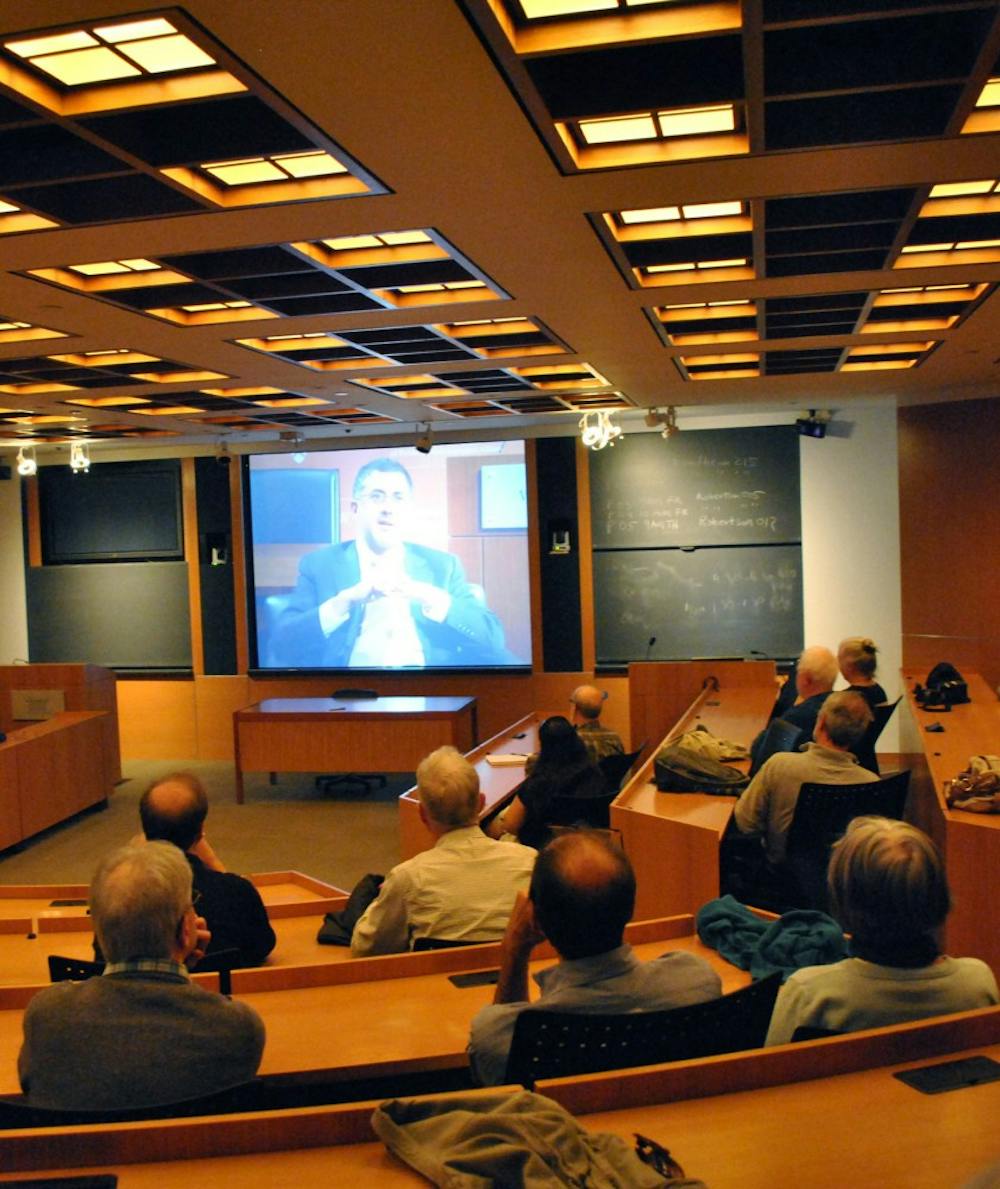The government has the ability to easily keep track of every citizen’s online activity, Pulitzer Prize-winning journalist Barton Gellman ’82 said in a lecture at the Wilson School Tuesday.
The discussion focused on Gellman’s role in the blockbuster series of stories relating to the National Security Agency’s extensive surveillance programs that begun appearing in the Washington Post and in the United Kingdom’s Guardian newspaper this summer.
“There has never been a disclosure of so much information of such high sensitivity,” Gellman said in reference to former NSA contractor Edward Snowden, who leaked the documents.
Gellman is also a former chairman of The Daily Princetonian.
Gellman described the backstory of how he became one of three journalists, together with the Guardian’s Glenn Greenwald and independent documentary filmmaker Laura Poitras, with whom Edward Snowden shared highly classified government documents.
Gellman said he was first contacted by Poitras, who had begun corresponding anonymously with a source who later revealed himself as Snowden. Eventually, Snowden and Gellman began to communicate directly,
Gellman said he would not go into greater detail about his interactions with Snowden or discuss the exact means of communications they have used.

“Just because he released his identity doesn’t mean I don’t have confidences regarding our communication,” he said.
Gellman explained in general terms the findings that came from Snowden’s documents and focused particularly on the NSA’s storage of metadata —the send-and-receive information as well as timestamps stored in communications —and its importance.
“It’s data about data. It’s the outside of the envelope when you mail the letter,” he explained.
According to Gellman, metadata can be more informative than the actual content of communications because advanced software programs can discover from large amounts of data user patterns that would be hard to find manually.

Gellman also defended Snowden’s decision to go public with the information by highlighting the inability of Congress to take action on its own. He spoke of how many high-level members of Congress had no idea of the NSA activities before the stories were published, and how those who did had no interest in publicizing its activities.
He described the process as a cycle that begins with a government that tries to keep too many secrets and people who try to find them. He emphasized that while reporting these stories he has never published information without asking high-level authorities to confirm that no information that could compromise national security would be released.
The one exception he made was publishing, against the government’s demands, a list of major companies that had provided their data to the government.
“If the harm that you’re worried about consists of companies stopping doing something because their customers and the public at large don’t like what they’re doing, and them losing business because of it, that’s why we have to [release the information]. That’s our job,” Gellman said.
During the audience-led question-and-answer session, Gellman admitted that he constantly considers and reflects on the way that he handled the Snowden story and is aware of its consequences.
He said he was “spooked” by the likelihood that he was subject of special attention and surveillance.
However, Gellman stated that he would stand by his right to resist any government pressures that may be put on him, given the importance of his information.
“I’ve seen the accumulation of powers that Orwell could not have imagined, and not only that,but, in the hands of a relatively small number of people,this stunning capacity to track you,” he said.
Gellman is currently an author-in-residence at the University’s Center for International Security Studies. He taught WWS 384: Secrecy, Accountability and the National Security State in the spring and fall semesters of 2012.
The discussion was held in the packed Dodds Auditorium in Robertson Hall at 4:30 p.m. Tuesday and was moderated by former U.S. ambassador and Wilson School professor Daniel Kurtzer.








